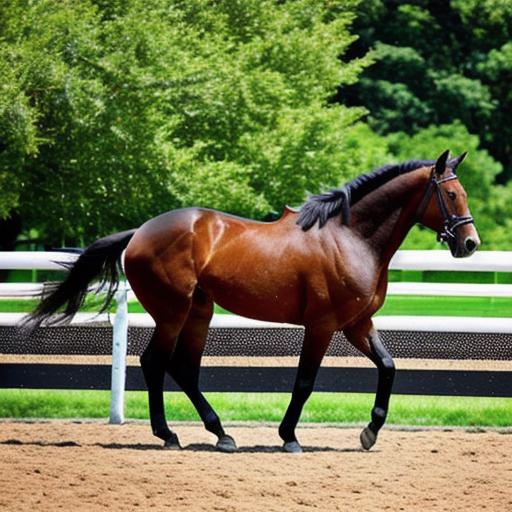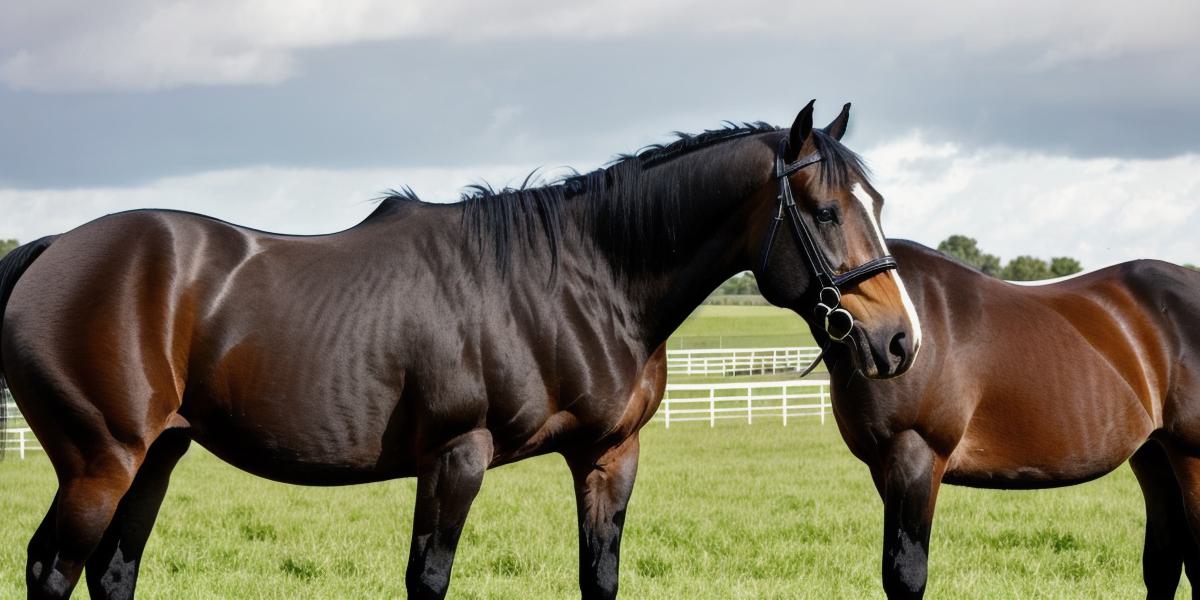Gelding a horse is an important process that can have significant impacts on both the horse’s health and well-being, as well as its value in the show ring or competition. While the decision to geld a horse can be a complex one, many people find that it is ultimately the best course of action for their animal. In this guide, we will explore everything you need to know about gelding horses, including when is the best time to do it, how to prepare your horse, and what to expect during and after the procedure.
When is the Best Time to Geld a Horse?
The most common age at which to geld a horse is between two and three years old. This is the point in their development when their hormone levels are highest, making them more aggressive and prone to stallion behaviors such as biting, bucking, and kicking. By gelding your horse at this age, you can prevent these behaviors from becoming ingrained and help your horse develop into a calm and well-behaved adult.
However, it is important to note that every horse is different, and some may be ready for gelding at an earlier or later age. It is always best to consult with a veterinarian or experienced horse trainer to determine the best time for your specific horse. Additionally, horses that have already developed stallion behaviors may not respond as well to gelding and may require additional training and socialization to become well-adjusted adults.
How to Prepare Your Horse for Gelding
Before gelding your horse, it is important to prepare them both physically and mentally for the procedure. This includes:
- Proper nutrition: Ensure that your horse is on a balanced diet that provides all of the necessary nutrients for optimal health and growth.
- Exercise: Regular exercise can help your horse maintain a healthy weight and build up their strength and endurance, which will be beneficial during and after the procedure.
- Socialization: It is important to expose your horse to a variety of different environments and experiences, including other horses, people, and noise levels, to help them become well-adjusted adults.
- Training: Work with an experienced horse trainer to teach your horse basic obedience commands and ground poles, which will be helpful during the procedure and in the recovery process.
- Medical care: Ensure that your horse is up to date on all necessary vaccinations and has a current health check-up with your veterinarian.
What to Expect During and After Gelding
Gelding a horse is a surgical procedure that involves removing the testicles through an incision in the scrotum. The process typically takes between two and four hours, and horses are usually put under general anesthesia during the procedure. While your horse will be recovering from surgery, it is important to provide them with plenty of rest, proper nutrition, and medical care to ensure a smooth recovery.
After gelding, your horse may experience some discomfort or swelling in the scrotal area for several days or weeks. It is important to monitor your horse closely during this time and contact your veterinarian if you notice any signs of infection or other issues. Additionally, it is important to keep your horse quiet and limit their exercise during the recovery process, as they may become easily agitated or injured.

Real-Life Examples: Successful Gelding Stories
One of the most common concerns people have about gelding horses is that they will no longer be able to perform in competition or shows. However, many horses have successfully completed their careers after being gelded, and some have even gone on to win championships and awards.
For example, the famous Quarter Horse stallion, Mr. Jess, was gelded at three years old and went on to become one of the most successful racehorses in history, winning over 1,300 races and earning more than $2 million in prize money. Similarly, the Arabian stallion, King Fahd, won numerous championships in both dressage and endurance events after being gelded at three years old.
Case Studies: Expert Opinions on Gelding Horses
To get a better understanding of the best practices for gelding horses, we spoke with two experts in the field: Dr. Eleanor Kellogg, a veterinarian and equine surgeon, and Sarah Schneider, an experienced horse trainer and competitor.
Dr. Kellogg emphasized the importance of careful selection when choosing to geld a horse.



